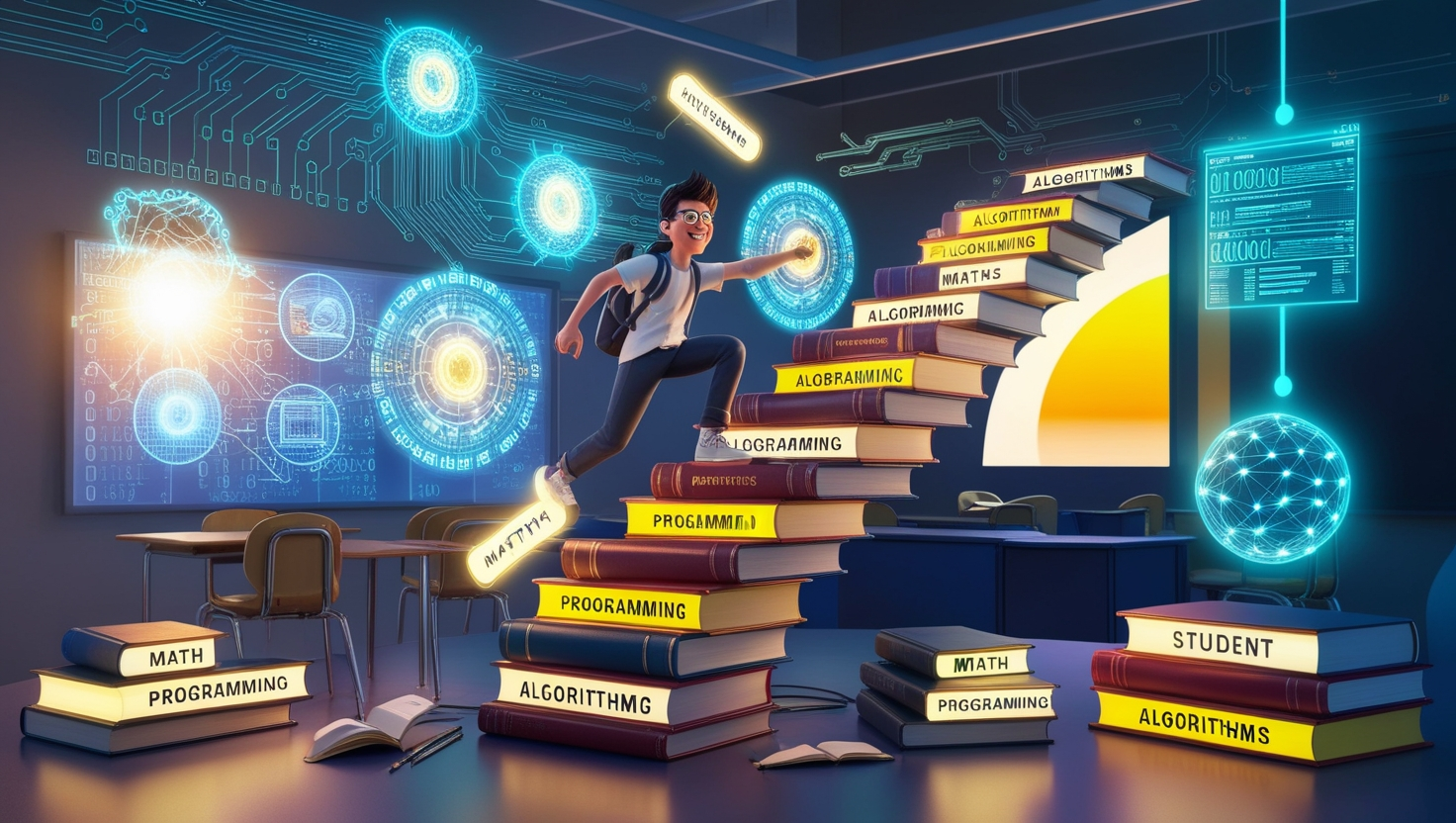It is exciting learning about Artificial Intelligence (AI), but challenging for anyone, whether beginner or veteran, to step into the new AI domains. It is a field that is so complex and in a constant evolution, requiring a blend of technical skills and conceptual understanding. This article takes a close look at the most common struggles learners face and how they can overcome them with practical tips.
Common Struggles in Learning AI

1. Overwhelming Amount of Information
AI has lots of subfields, such as Machine Learning (ML), Natural Language Processing (NLP), and Computer Vision. The sheer number of concepts, tools, and frameworks can overwhelm learners.
2. Weak Foundations
Artificial Intelligence is deeply dependent on mathematics (linear algebra, calculus, probability) and programming expertise. Weak foundations in either can be a significant blocker.
3. Algorithms’ Difficulty
Artificial Intelligence algorithms, such as neural networks and reinforcement learning, are intimidating. Their abstract nature makes them hard to understand without experience.
4. Limited Resources
Online courses and tutorials abound, but finding good, practical resources that are targeted to your level of learning is difficult.
5. Rapid Advances
Artificial Intelligence is a fast-moving field. New frameworks, tools, and breakthroughs emerge daily, making it hard to keep up.
How to Overcome Common AI Learning Struggles

1. Start with a clear roadmap
Begin with learning the basics of Artificial Intelligence, and then try to explore the specialized domains.
Start with the understanding of AI workflow: collection of data, preprocessing, building a model, evaluation, and deployment
Follow a structured learning path. Many platforms like Coursera and edX offer comprehensive courses on Artificial Intelligence for beginners.
2. Build your math and programming skills
Math: Linear algebra (matrices), calculus (gradients), and statistics (probability). Khan Academy and 3Blue1Brown are pretty good for beginners.
Programming: Start with Python since it’s one of the most commonly used languages in Artificial Intelligence. Try to learn libraries like NumPy, pandas, TensorFlow, and PyTorch.
3. Divide the Algorithms into Simpler Concepts
Start with simple algorithms, such as linear regression and decision trees.
Use visual tools like TensorBoard or try online platforms like Google Colab to experiment with neural networks.
Use interactive tools like “Deep Learning Illustrated” or AI explainer blogs to explain concepts
4. Work on Hands-On Projects
Apply knowledge to real projects. Data sets and competitions on sites like Kaggle provide for hands-on learning.
Develop simple Artificial Intelligence models such as chatbots or image classifiers to internalize knowledge.
5. Join a Learning Community
Join forums such as r/MachineLearning in Reddit or communities on Discord to connect with other Artificial Intelligence enthusiasts.
Attend local meetups or hackathons to network and learn from others.
Connect with mentors or peers to get doubts clarified and diverse perspectives.
6. Stay Updated Wisely
Subscribe to the best blogs, newsletters, or YouTube channels on Artificial Intelligence.
Follow industry leaders on platforms such as Twitter or LinkedIn to curate the best insights.
Use tools such as Feedly to aggregate updates from multiple sources of Artificial Intelligence in one place.
Tools and Resources for AI Learners

Books
- Artificial Intelligence: A Modern Approach by Stuart Russell and Peter Norvig
- Deep Learning by Ian Goodfellow
Online Courses
- Machine Learning by Andrew Ng (Coursera)
- Deep Learning Specialization (Coursera)
Practice Platforms
- Kaggle (Data Science Competitions)
- Google Colab (Free GPU for AI Development)
Communities
- Stack Overflow
- GitHub repositories and open-source projects
Conclusion
Mastering AI is a marathon, not a sprint. As a field, it presents challenges, but a focused approach, plenty of practice, and the right resources will help overcome common learning struggles in Artificial Intelligence. And as one would say, “Never forget that even experts once were beginners!”.



